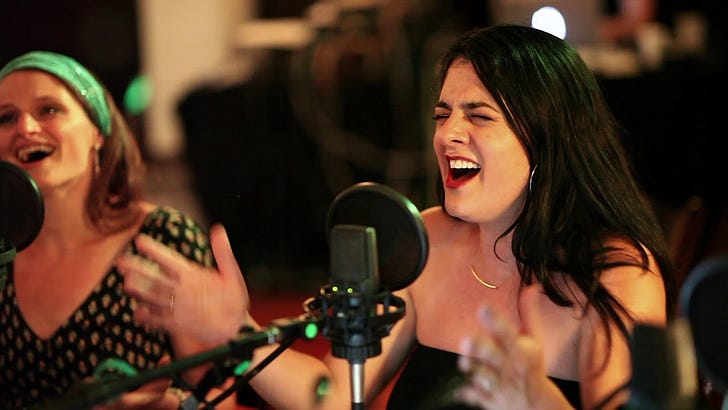Stay Away From...
Mishpatim 5784 - Be a lighthouse for truth and help sing it out in the world so it can really shine.
Emet - Rabbi Josh Warshawsky and the Chaverai Nevarech Band
One of the many sources of wisdom I use to craft these mini drashot (teachings) is a compendium called Iturei Torah, or Pearls of Wisdom. It is a vast collection in seven volumes of short Hasidic teachings on the parsha, organized by verse. Each volume of mine is bulging with post-it flags and little notes in the margins of teachings that have spoken to me over the years that I want to come back to or to teach in various settings.
Every so often there are a collection of teachings on a given verse and I often just read one or two and then move on. But this week I looked and had flagged teaching after teaching on the same verse - Exodus chapter 23 verse 7. This week we read parashat Mishpatim, replete with law after law about how we should treat each other and what it means to live in community with our fellow human beings. Every verse could be a sermon in its own right, but I just wanted to focus on three little words today:
מִדְּבַר־שֶׁקֶר תִּרְחָק
Distance yourself from lies (Ex. 23:7)
This concept of lies and falsehoods is so fraught, especially nowadays. What is truth and what is a lie and how can we possibly figure out how to differentiate between the two enough to distance ourselves from one when we are simply surrounded by noise and words and shouting at all times? I offer us selections of the wisdom of our sages and their attempts to answer this question, and then I’ll conclude.
1. Rav Avraham Avish of Frankfurt (1860s)
If only one knew how powerful and wonderful the strength of the truth could be in this world, they would never even attempt to lie.
2. Rav Pinchas of Koretch (1726-1791 Poland/Lithuania)
Nothing was ever as hard for me as the work I did against falsehood. 13 long years I toiled, and she broke every single one of my bones, but I evaded her.
3. Reb Zusha of Anapoli (1718-1800 Ukraine)
When you say one lie you immediately distance yourself from the Holy One, and not even all of your good deeds will bring you as close to The Holy Blessed Place (Hamakom) again.
4. Reb Elimelech of Lizensk (1717-1787 Poland and Reb Zusha’s brother)
Reb Elimelech of Lizensk once said about himself, “I am certain that I will go to heaven.” When they ask (at the gates) “Did you fully learn Torah?” I will tell the truth, “No.” And they will conclude that due to my absolute honesty I deserve to enter the Next World.
5. Reb Simcha Bunim of Peshischa (1765-1827 Poland)
Only one place in the Torah do we see that the Torah tells us to physically distance ourselves from something. It is only with regards to lies that the Torah is explicit in this regard, “Keep far from lies.”
The potential of truth is so powerful and so hopeful but so difficult to discern. Lies and deceit are so convincing and they are so easy to succumb to. But if the Torah makes one thing clear, it is that we are supposed to do the best we can to be honest. To distance ourselves from lies and to surround ourselves with others who can help us uphold and be a bastion for truth.
As I’ve mentioned a few times, I really love the Hebrew language - the way words and letters are intricately connected and infused with so much meaning. The Talmud teaches (BT Shabbat 104a):
שֶׁקֶר — אֱמֶת
Why are the letters of the word sheker adjacent to one another in the alphabet (one right after the other), while the letters of emet are distant from one another (beginning, middle, and end of the alphabet)? That is because while falsehood is easily found, truth is found only with great difficulty.
And why do the letters that comprise the word sheker all stand on one foot (balanced precariously on their bottom points), and the letters that comprise the word emet stand on bases that are wide like bricks (either on two feet or with solid bottom lines)? Because the truth stands to be sustained/confirmed eternally and falsehood does not stand to be fulfilled (it is destined to fail).
In her book “Talking to God” Rabbi Naomi Levy writes, “I no longer look to God to prevent life’s ugliness; I look to God to show me the way to prevent the cruelty I have the power to prevent. I no longer see God as a being who can shield me from all harm, but as a presence who has the power to point me toward the holiness that resides in simple acts.”
The work of truth is not easy and it is never-ending, but everyday I strive to walk in the world truthfully and honestly - this is the least and the most that can be asked of any human being. Be a lighthouse for truth and help sing it out in the world so it can really shine.
Shabbat Shalom,
Josh



